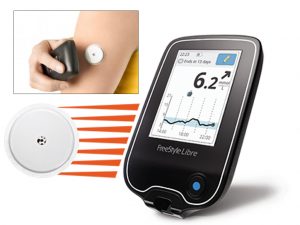Technology is reshaping our lives in so many ways, both professionally and personally. I remember my first camera phone from 2003 which blew my mind with its Star Trek- like futurism. The same year, I bought my first iPod, which seemed like the most beautiful piece of personal technology I had ever seen. I still have it and, like the phone, it now seems so basic and clunky, as if it is from a different age. We have moved on so far and fast in the years since.
Our world is now in so many ways hugely influenced by technologies – how we communicate, how we entertain ourselves, shop, bank, read, campaign, vote, and even how we exercise. But one area I am particularly interested in is how technology is fundamentally changing the healthcare industry.
In many ways, it is obvious how technology is changing the way we manage and treat health issues; online record sharing, scanning and diagnostic tools, alongside biotech developments such as stem cell R&D. In other ways though, it is not clear how fast technology is set to disrupt so many aspects of healthcare.
 One very interesting development is in the use of wireless technology to monitor our health. Abbott (pictured) has developed a device called Freestyle Libre, which is an amazing piece of kit; a small pad is stuck to your skin and, in its two-week lifespan, it will transmit, by the minute, blood sugar levels to your phone. This development has fundamentally improved many lives for people with diabetes, especially children and their parents, allowing for a sea of change in how well diabetes can be managed.
One very interesting development is in the use of wireless technology to monitor our health. Abbott (pictured) has developed a device called Freestyle Libre, which is an amazing piece of kit; a small pad is stuck to your skin and, in its two-week lifespan, it will transmit, by the minute, blood sugar levels to your phone. This development has fundamentally improved many lives for people with diabetes, especially children and their parents, allowing for a sea of change in how well diabetes can be managed.
Another astonishing technological development is IBM Watson. Watson for Oncology is a cognitive computing system trained by physicians at Memorial Sloan Kettering. It is able to take a patient’s medical records, extract pertinent information about his or her health, and come up with a personalised treatment plan based on an analysis of millions of patient records. Watson can also suggest which treatments should not be pursued and provides relevant studies to back up its proposals. All in all, it’s meant to help clinicians navigate individual patients’ cases with the help of the latest available research. It is brilliant and it works, and is increasingly used all over the world, with excellent results for patients with many types of cancer.
Meanwhile, the FDA has approved the first drug combined with a digestible sensor. The Japanese Otsuka Pharmaceutical and Proteus Digital Health combined a digestible sensor with a type of drug against mental illness. The ingestible sensor communicates with a wearable sensor patch if the drug is taken, then the information is transmitted to a smartphone or tablet of the caretaker or the patient. The ultimate aim is to measure drug adherence in the treatment of adults with schizophrenia, acute treatment of manic and mixed episodes associated with bipolar disorder, and as adjunctive therapy for the treatment of major depressive disorders in adults. Now that’s pretty smart.
From 3D printed drugs, to virtual reality for medical training and pain management, right through to using artificial intelligence to root out therapies from molecular databases – one thing is clear: the pace of technological advancement is speeding up, and in this highly regulated industry there is now a real need for policy-makers and regulators to keep pace with this progress in order to allow patients to fully benefit.
The pace of technological advancement is speeding up – regulators and policy-makers will need to keep up
One example of this at work is the consumer genetic testing company 23andme that was blocked by the FDA in 2014 because it did not fully get how it benefited patients, saying it was not clear how the information was of use, only to come back three years later to approve how this brilliant simple test would pick up a whole range of diseases to which a person is susceptible.
It is an exciting time to be alive for many reasons, and it will be fascinating to see in the coming decade how fundamentally different companies like Google and Amazon will help change how we view healthcare delivery and benefit from what is yet to be seen.